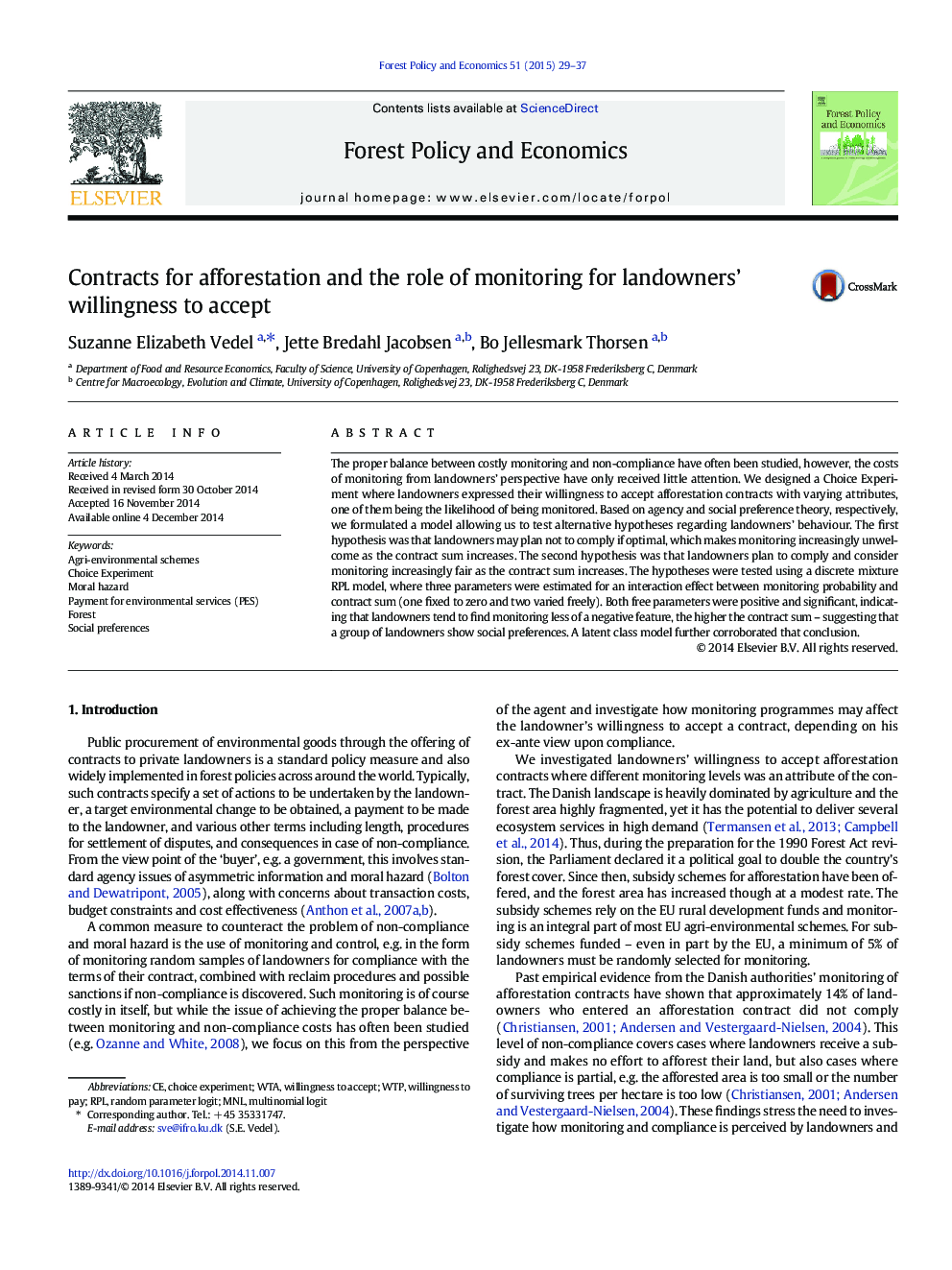| Article ID | Journal | Published Year | Pages | File Type |
|---|---|---|---|---|
| 91811 | Forest Policy and Economics | 2015 | 9 Pages |
•We investigated landowners’ WTA for monitoring in afforestation contracts.•Hypotheses of landowners’ behavior under agency or social preferences are put forth.•We tested for moral hazard or social preferences in landowners’ stated choices.•Landowners show greater acceptance of monitoring when compensation levels are high.
The proper balance between costly monitoring and non-compliance have often been studied, however, the costs of monitoring from landowners’ perspective have only received little attention. We designed a Choice Experiment where landowners expressed their willingness to accept afforestation contracts with varying attributes, one of them being the likelihood of being monitored. Based on agency and social preference theory, respectively, we formulated a model allowing us to test alternative hypotheses regarding landowners’ behaviour. The first hypothesis was that landowners may plan not to comply if optimal, which makes monitoring increasingly unwelcome as the contract sum increases. The second hypothesis was that landowners plan to comply and consider monitoring increasingly fair as the contract sum increases. The hypotheses were tested using a discrete mixture RPL model, where three parameters were estimated for an interaction effect between monitoring probability and contract sum (one fixed to zero and two varied freely). Both free parameters were positive and significant, indicating that landowners tend to find monitoring less of a negative feature, the higher the contract sum – suggesting that a group of landowners show social preferences. A latent class model further corroborated that conclusion.
